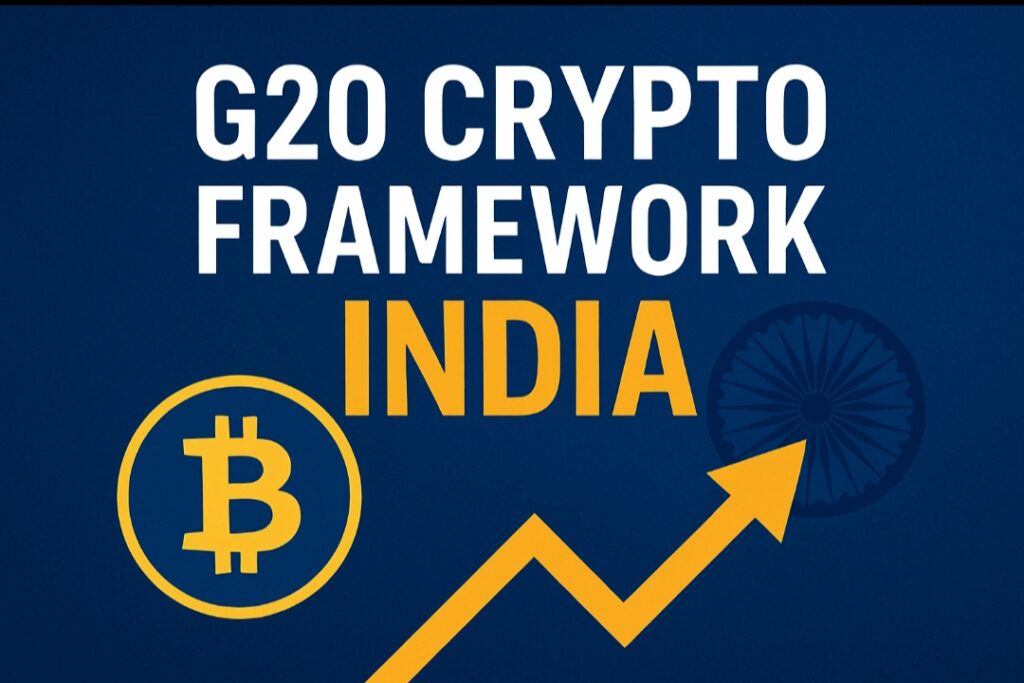
: How It Impacts India’s Future
Why the G20 Crypto Rules Matter for India
With cryptocurrency growing globally, the G20 nations have agreed to create a unified regulatory framework. For India, this move is more than just policy—it’s a defining moment for our digital finance future. If you’re a crypto investor, entrepreneur, or simply curious, here’s why you should care.
What is the G20 Crypto Framework?
The G20 Crypto Framework is a globally coordinated approach created by the world’s top economies to regulate the digital assets space. It was built with the guidance of the Financial Stability Board (FSB) and the International Monetary Fund (IMF).
- Introduces standardized crypto regulations worldwide
- Aims to reduce financial crime like money laundering and terrorism financing
- Improves transparency and builds user confidence in crypto markets
India’s Role in the G20 Crypto Policy
India played a key role in leading the conversation during its G20 presidency. The country is pushing for global collaboration over isolation.
India’s Key Focus Areas:
- No complete ban: Instead, India supports smart regulation and oversight
- Transparency: Emphasis on anti-money laundering (AML) compliance and KYC norms
- Taxation alignment: India has already introduced 1% TDS and 30% tax on crypto profits
What Does This Mean for Indian Crypto Investors?
If you’re a user in India, the is a game changer. Here’s what you can expect:
- ✅ More Security: With global rules, crypto exchanges will be safer and more reliable
- ✅ Greater Transparency: You’ll know exactly what the legal boundaries are
- ✅ Cross-Border Freedom: Travel and invest globally without violating laws
- ✅ Market Confidence: Institutional investors may now enter the Indian market.

Opportunities for Indian Startups
The regulation isn’t just about control—it’s also about opportunity. Indian tech entrepreneurs can build services that are globally compliant and scalable.
- 🚀 Launch legal and secure crypto exchanges or DeFi apps
- 🤝 Attract international investors by meeting compliance norms
- 📈 Expand globally without fear of violating foreign regulations
- 💼 Work with foreign blockchain partners under unified standards
Challenges to Watch Out For
Like any change, there are potential downsides:
- 🔻 Short-term volatility in market prices due to regulatory uncertainty
- 🔻 Increased compliance burden for Indian crypto startups
- 🔻 Limited user anonymity due to stricter KYC policies
Resources for More Information
- FSB Official G20 Crypto Report
- Income Tax India – Crypto Taxation
- Related Article: India’s Crypto Tax Guide
Final Thoughts: Is India Ready for a Crypto Revolution?
The G20 framework is not just about creating rules—it’s about building a future. India has shown the world that it’s ready to lead responsibly. For investors and innovators, this is a golden moment to adapt, grow, and succeed in a safer, more regulated digital economy.
Call to Action
What do you think about the G20’s crypto policy? Is India on the right track?
- 💬 Share your opinion in the comments below
- 🔗 Explore more finance blogs on SV Linker
- 📢 Share this post with your crypto-savvy friends

